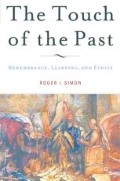Abstract
What might it mean to live our lives as if the lives of others truly mattered? One aspect of such a prospect would be our ability to take the stories of others seriously, as not only evocations of responsibility but also as matters of “counsel.”Walter Benjamin referred to counsel as, “less an answer to a question than a proposal concerning the continuation of a story which is just unfolding” (1969, 86). For Benjamin, in order to seek and receive counsel, one would first have to be able to tell this unfolding story. On such terms, for the lives of others to truly matter—beyond what they demand in the way of an immediate practical solidarity—they must be encountered as counsel, stories that actually might shift our own unfolding stories, particularly in ways that might be unanticipated and not easily accepted. In what way then might the stories such as those of Betsy Anderson, Mary Yassie, and Charlie Kithithee be encountered as counsel? In order to explore the possible terms of such an encounter, I will address here the importance of a sphere of public memory as a transactional space, not for the consolidation of national memory, but for mobilizing practices of remembrance-learning (Eppert, 1999) in which one’s stories might be shifted by the stories of others.
I remember when the people were brought to Churchill, my husband and I watched them being unloaded off the plane at the shores of Hudson Bay. “This is a bad, bad thing for our people,” we said. “Somebody’s making a great mistake. From here on, they will be suffering. They are not prepared for this.” There were no houses for them anywhere. The winter was closing in. I was very saddened by what was happening. I felt, from now on, there’ll be nothing but disaster for our people.
Betsy Anderson
I also remember the time we were moved to Churchill. When our elders say that the people where dumped on the shores of Hudson Bay, they are telling the truth. Some families didn’t have tents for shelter, and they had young children, but they were left like that.As the winter set in we had no other way but to live in a canvas tent for the whole winter. My dad eventually built a shack with scrap lumber across the Churchill River where some people were living.We would live there in the winter and come across to the town and summer at the point, Cape Merry.We had a home-made stove made out of a forty-five gallon gas tank. People didn’t own proper woodstoves in those days.
Mary Yassie
We were working at the airport.We were outside, doing casual labour, when the plan landed and the people were unloaded.The plane was a huge aircraft with a round belly. It landed and the people came out one by one. I remember the children crying and the few dogs yelping to get free. Eventually everything and everyone was unloaded and put on a big truck and driven down into town.They were all taken to the point at Cape Merry. There, the people were dumped to fend for themselves on the shores of Hudson Bay.Winter was closing in. Some of the people set up their tents, and some made makeshift shelters for themselves. One of the tents stood out because you could see the shadows of the people who were sitting inside. Already, the feeling of hopelessness was in the air.There was no laughter, no joy, only dead silence. Even the dogs were not moving. The feeling just hung over the people like death.
Charlie Kithithee
All the quotes are from Night Spirits:The Story of the Relocation of the Sayisi Dene Ila Bussidor and üstün Bilgen-Reinart (1997, 47–48).
Access this chapter
Tax calculation will be finalised at checkout
Purchases are for personal use only
Preview
Unable to display preview. Download preview PDF.
Copyright information
© 2005 Roger I. Simon
About this chapter
Cite this chapter
Simon, R.I. (2005). The Touch of the Past: The Pedagogical Significance of a Transactional Sphere of Public Memory. In: The Touch of the Past: Remembrance, Learning, and Ethics. Palgrave Macmillan, New York. https://doi.org/10.1007/978-1-137-11524-9_6
Download citation
DOI: https://doi.org/10.1007/978-1-137-11524-9_6
Publisher Name: Palgrave Macmillan, New York
Print ISBN: 978-1-4039-6747-3
Online ISBN: 978-1-137-11524-9
eBook Packages: Palgrave Social & Cultural Studies CollectionSocial Sciences (R0)

